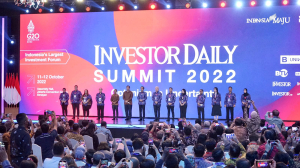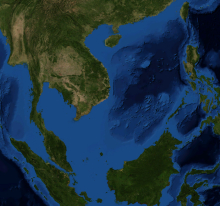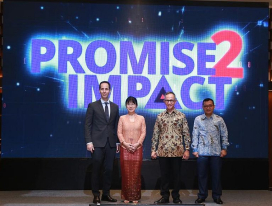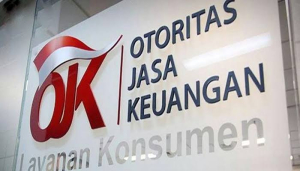Indonesia's OJK revises green taxonomy, considering green label for coal plants in energy transition
The Indonesian Financial Services Authority (OJK) is in the process of revising Indonesia's green taxonomy, including the possibility of granting a green label to coal-fired power plants (PLTU) involved in energy transition.
Mahendra Siregar, Chairman of the OJK Board of Commissioners, explained that this revision is influenced by recent developments at both the ASEAN and international levels. The ASEAN Taxonomy for Sustainable Finance, version two, has included provisions that consider coal-fired power plants in the process of early retirement as eligible for sustainable financing.
"The second version of the ASEAN Taxonomy for Sustainable Finance states that coal-fired power plants that are in the process of energy transition in the form of early retirement are included in the group that can be provided with sustainable financing," he said.
"In certain contexts, it is not certain that early retirement of coal-fired power plants must be directly linked to the construction of renewable energy plants. It is in that context that the ASEAN Taxonomy for Sustainable Finance has confirmed that early retirement (financing) for PLTUs can be considered green even if it is not linked to the development of renewable energy plants," he further adds.
This development aligns with international forums where financing for energy transition, such as the early retirement of coal-fired power plants, is often linked to renewable energy projects as part of a holistic approach.
OJK is now evaluating financing for coal projects where the energy is used for green and sustainable industries, such as electric vehicle battery factories or electric vehicle manufacturing plants.
The key criterion in this evaluation is whether the end result of the supply chain provides a greater positive impact on renewable or green industries when compared to not being done. This integrated supply chain approach will be considered green, although it doesn't necessarily involve renewable energy projects.
“What we look at in turn is the final result of a supply chain, whether it can have a greater positive impact than not on renewable or green industries. As an integrated whole, the supply chain is considered green. We are currently reviewing this," he stated.
Implications that follows
This move, however, has raised concerns regarding its impact on investor confidence and Indonesia's commitment to sustainability. Some experts have raised concerns about the potential for "greenwashing," where coal projects are labelled as green, potentially undermining the credibility of Indonesia's sustainability commitments.
Notably, no other global green or sustainable finance taxonomy recognizes coal power as green. Even countries with a significant coal presence, like China and Russia, have excluded coal and gas-powered generation from their green taxonomies. This potential shift could have implications for foreign investor confidence and the perception of Indonesia's green taxonomy.
Indonesia's consideration of categorizing new coal-fired power plants as green in its national green taxonomy has raised concerns, including from the Institute for Energy Economics and Financial Analysis (IEEFA).
Christina Ng, an IEEFA analyst, expressed their concern, if this policy were to be enacted, it would not only set Indonesia apart from established global green finance taxonomies but also send an alarming message to investors focused on sustainability.
The decision may also impact Indonesia's negotiations with international partners within the framework of the Just Energy Transition Partnership (JETP). Indonesia's consideration of categorizing new coal-fired power plants as green has raised concerns and garnered criticism.
It is essential for Indonesia to balance its energy transition goals with international sustainability standards and investor expectations to maintain credibility and attract responsible financing. The outcome of the ongoing revision will be closely monitored by various stakeholders, as its development carries implications for foreign investor confidence. Investors seeking alignment with sustainable assets, may question Indonesia's commitment to decarbonization and the reliability of its green taxonomy.
Already have an account? Sign In
-
Start reading
Freemium
-
Monthly Subscription
30% OFF$26.03
$37.19/MonthCancel anytime
This offer is open to all new subscribers!
Subscribe now -
Yearly Subscription
33% OFF$228.13
$340.5/YearCancel anytime
This offer is open to all new subscribers!
Subscribe now






